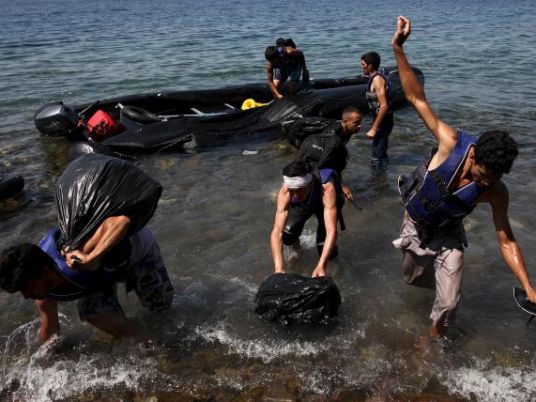
EU member states on Friday gave Greece a three-month ultimatum to remedy "deficiencies" in controlling the influx of migrants or effectively face suspension from the Schengen passport-free zone.
The decision — taken by ministers over Greek objections — culminates weeks of pressure on Greece, the main gateway for the million refugees and migrants who entered Europe last year, stoking the continent's biggest such crisis since World War II.
A report adopted 10 days earlier by the European Commission, the EU executive, found Greece was failing to properly register and fingerprint migrants during inspections at the Turkish land border and several islands in the Aegean Sea last November.
"It is of utmost importance that Greece addresses the issues identified in the report adopted by the Commission as a matter of priority and urgency," EU ministers said in the recommendation that two EU sources said was adopted Friday.
The document, seen by AFP, gave Greece, which is already struggling to emerge from a massive debt crisis, one month to "establish an action plan to remedy the deficiencies."
After a further two months, Greece must report back on how the scheme is being implemented.
The document was not immediately published on EU websites, which nonetheless confirmed that member states had given Athens a three-month ultimatum to fix the problems or face effective suspension from Schengen.
If Greece fails to remedy the problems by mid-May, Brussels could authorize other member states to exceptionally extend border controls within the EU's cherished Schengen area, including with Greece, for up to two years, instead of the normal six months.
Such a scenario is outlined under article 26 of the Schengen border code.
Germany, which along with other member states introduced such border controls late last year, on Thursday extended the measures until May, the limit under current Schengen provisions.
The Schengen area allows passport-free travel through 26 countries, most of them in the EU, and is put forward as one of the major European achievements on unity.
Greece's 'substantial' costs
An EU source told AFP that Greece voted against the ultimatum, while Cyprus and Bulgaria abstained.
In a meeting with EU ambassadors in Brussels on Wednesday, Greece registered its objections to the recommendation to be adopted.
In a document published on the European Council website, Greece rejected the report's contention that it was responsible for "serious deficiencies" in border control and denied it was "seriously neglecting its obligations."
Greece also said it had taken a number of measures at "substantial national financial and social cost" and reminded Brussels that the massive influx on its borders would put any member state under "severe pressure."
However, it said it would continue cooperating with the EU and its institutions in dealing with the crisis.
In formally announcing the three-month deadline, the European Council website noted that any member state would have been hard pressed to deal with such an unprecedented influx.
But Greece had to take action on registration procedures, sea border surveillance, border checks, risk analyses, human resources and training as well as equipment and international cooperation, it said.
Germany, which saw 1.1 million asylum seekers enter the wealthy country last year, has been the main destination for most of the migrants once they land in Greece or other points in Europe, with Athens accused of just letting them through.
German Chancellor Angela Merkel's liberal refugee policy came under fire again as French Prime Minister Manuel Valls warned Friday it is not sustainable in the long run.
Valls's criticisms came after his Russian counterpart Dmitry Medvedev lambasted Merkel's asylum policy as a "total failure."
Tensions between Brussels and Ankara continue to mount as the EU seeks to enforce a November aid-for-cooperation deal to curb the tide of migrants making their way from Turkey, which hosts 2.7 million mostly Syrian refugees.
A senior Turkish official said Friday that some 100,000 Syrian refugees are being looked after in camps inside Syria close to the Turkish border as they flee the latest upsurge in fighting.
As Ankara came under EU and UN pressure to open its border, Turkish President Recep Tayyip Erdogan on Thursday threatened to send the millions of refugees in Turkey to EU member states.




